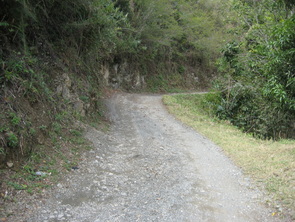
To be fair, the major community hubs had names, For example, there were Hagley Gap, Minto, Epping Farm, Penlyne Castle, and Farm Hill. There were some worn wooden markers in some places, but after you were out of those areas, you seem to enter no man’s land. The words “corner,” “curb,” “level,” “hill,” “tank,” “tree,” and “stump” were used frequently by locals to give directions, and they were very effective location finders.
As a child it didn’t bother me that few place I knew had names. It was just the way things were for generations. Each group of people that lived in the rural areas did what the previous dwellers before had done, and so the generational practices were passed on.
From what I know, no one since the development of these communities hundreds of years ago ever got lost following the directions of the locals. People found their destinations without much worry and today the locals as well as visitors continue to travel along the roads and paths with no challenge.
I am not sure why this was so, or continues to be so, but I wonder now if the roads and paths should not be named. Would the generation now or those to come benefit from knowing the names of the places they roam?
When you tell someone especially in a country like America that the road you live on didn’t have a name, or your house you lived in didn’t have a number, most people think that to be very strange and sometimes primitive. Sometimes I agree. Are my home community and many others around the island primitive? The city streets are named, the gates by each house have a number, so why is it not the same for those in the rural areas?
I intend now as an adult to garner some understanding and explore the idea of giving the paths and roads in rural communities, names. Why? Because names are important. Names are identifying marks that represent not just personhood, but give the place in your environment importance and meaning. So why name any road, street, or path we walk on? Because among other things…
- it increases literacy…reading, writing, speaking
- it gives a new language to the population
- it gives the population a new way to think about their community
- it establishes cultural pride and heritage
- it gives the new generation a new way of thinking about who they are and what their community can offer the world
If indeed our communities represent the framework for who we are then we a generation of wealth in so many areas of our lives, need to look at past practices, and question why things were so. We then need to determine if those practices need to continue to be as they were, or do we the generation of “MORE” need to make changes that will impact those that come after us in new and improved ways.
 RSS Feed
RSS Feed
